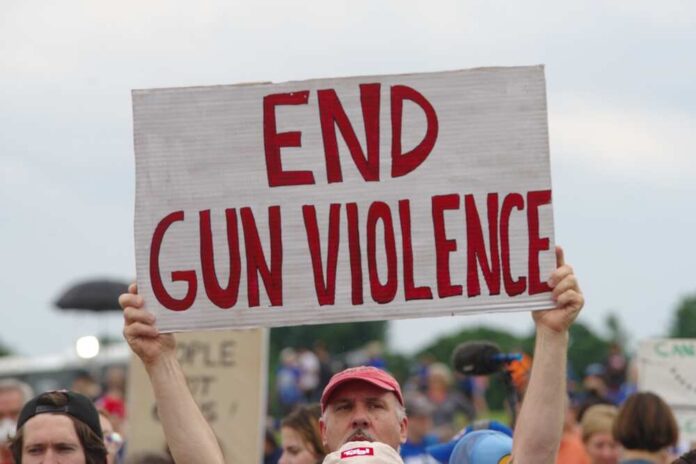
(PatriotNews.net) – In an escalating battle over gun rights, the U.S. Supreme Court’s refusal to engage with Hawaii’s stringent handgun licensing laws has the nation’s attention.
At a Glance
- The Supreme Court declined to hear a challenge to Hawaii’s gun-licensing law.
- Justices Clarence Thomas and Samuel Alito showed interest in the Second Amendment debate.
- Justice Neil Gorsuch hinted that the court might revisit the Christopher L. Wilson case.
- Conservative states continue to drop gun license requirements.
The Standoff Between State and National Oversight
The Supreme Court’s recent decision not to hear the challenge against Hawaii’s licensing laws signifies a victory for states’ rights advocates amidst a contentious national dialogue. Under Hawaii’s laws, individuals are required to secure permits to carry handguns in public. This debate over such stringent regulations remains a chapter of a nationwide saga on balancing individual rights with public safety concerns.
SCOTUS Declines Hearing Appeal Challenging Hawaii Gun Licensing Law
Key to this saga is the figure of Christopher L. Wilson, who argues that these laws breach his Second Amendment rights. He was charged for hiking with an unlicensed handgun on private property in 2017. Although initially dismissed, Hawaii’s top court later reinstated it, challenging the Supreme Court’s view that had expanded gun rights in 2022.
Implications and Future Directions
Justices like Clarence Thomas and Samuel Alito have long emphasized a need to “reaffirm that the Second Amendment warrants the same respect as any other constitutional right.” Their dissent erupts from concerns over state laws seemingly sidestepping national standards on gun rights. Justice Gorsuch also acknowledged, “raises serious questions,” suggesting a possible revisit.
Amidst these proceedings, Hawaii has adjusted its licensing policies to ease approval processes, subtly aligning with recent judicial directions. If the constitutional challenges persist, Wilson’s case may yet again climb to higher courts once a final judgment is in place, potentially reigniting the national discussion.
Supreme Court rejects appeal challenging Hawaii gun licensing requirements under Second Amendment https://t.co/6zNXywgQTS pic.twitter.com/eiQRnqh33e
— Orlando Sentinel (@orlandosentinel) December 9, 2024
Broader Context in American Gun Policy
This ruling is a testament to the enduring tension between federal oversight and state autonomy. Hawaii showcases the broader debate on constitutional rights versus public security. With several conservative states relaxing gun regulations, the landscape appears primed for future court challenges, reinforcing the intricate balance between individuals’ rights and communal safety.
“The Hawaii Supreme Court issued its ruling in the course of an interlocutory appeal. And often courts revisit and supplement interlocutory rulings later in the course of proceedings. Perhaps the Hawaii Supreme Court will take advantage of that opportunity in this case. If not, Mr. Wilson remains free to seek this Court’s review after final judgment.” – Justice Neil Gorsuch –
The Supreme Court’s choice to maintain Hawaii’s licensing law leaves the nation with a pertinent question: at what point does state-crafted regulation infringe on fundamental rights guaranteed by the Constitution?
Copyright 2024, PatriotNews.net














